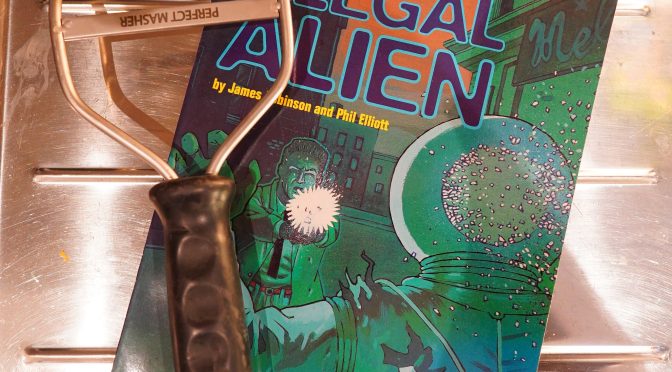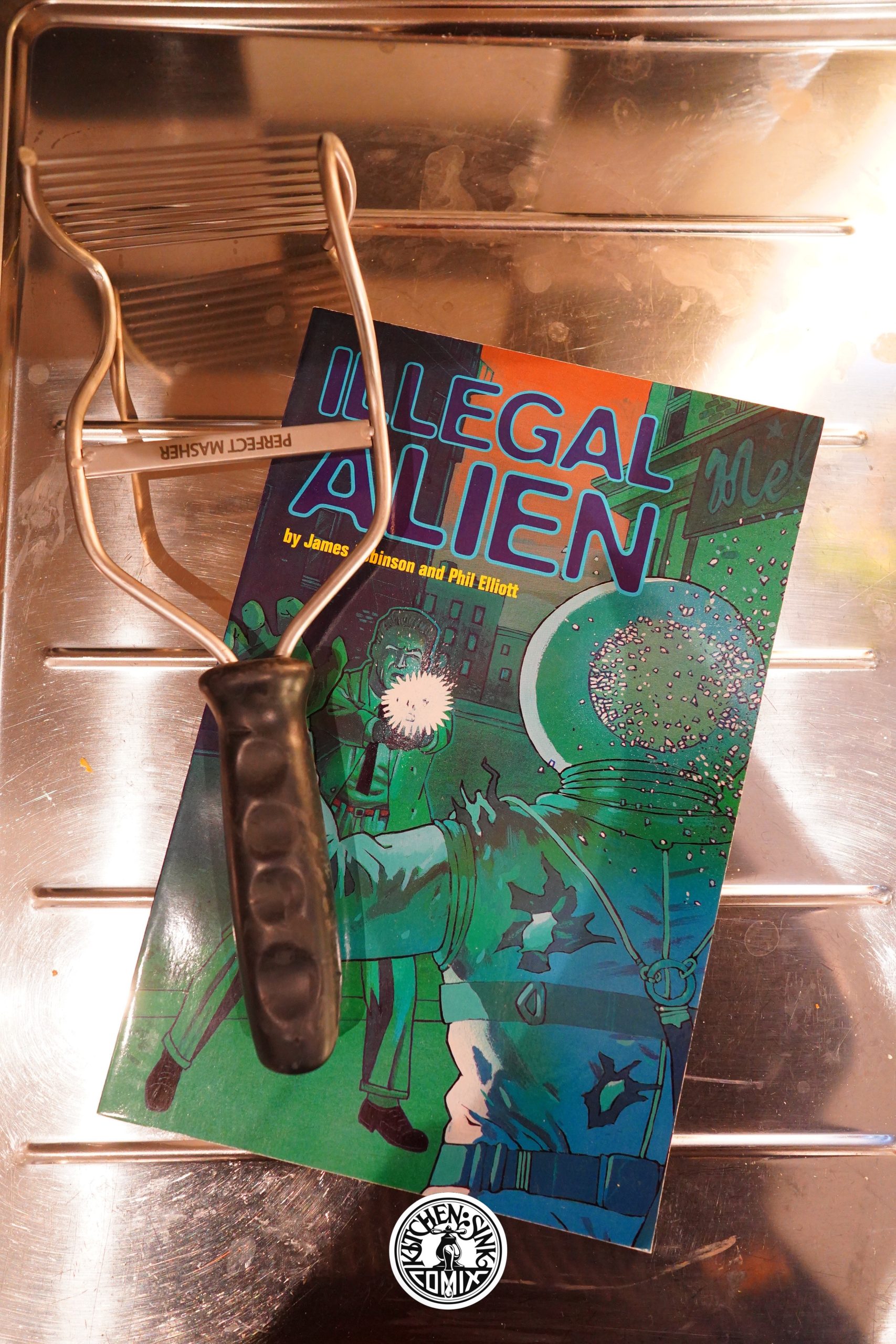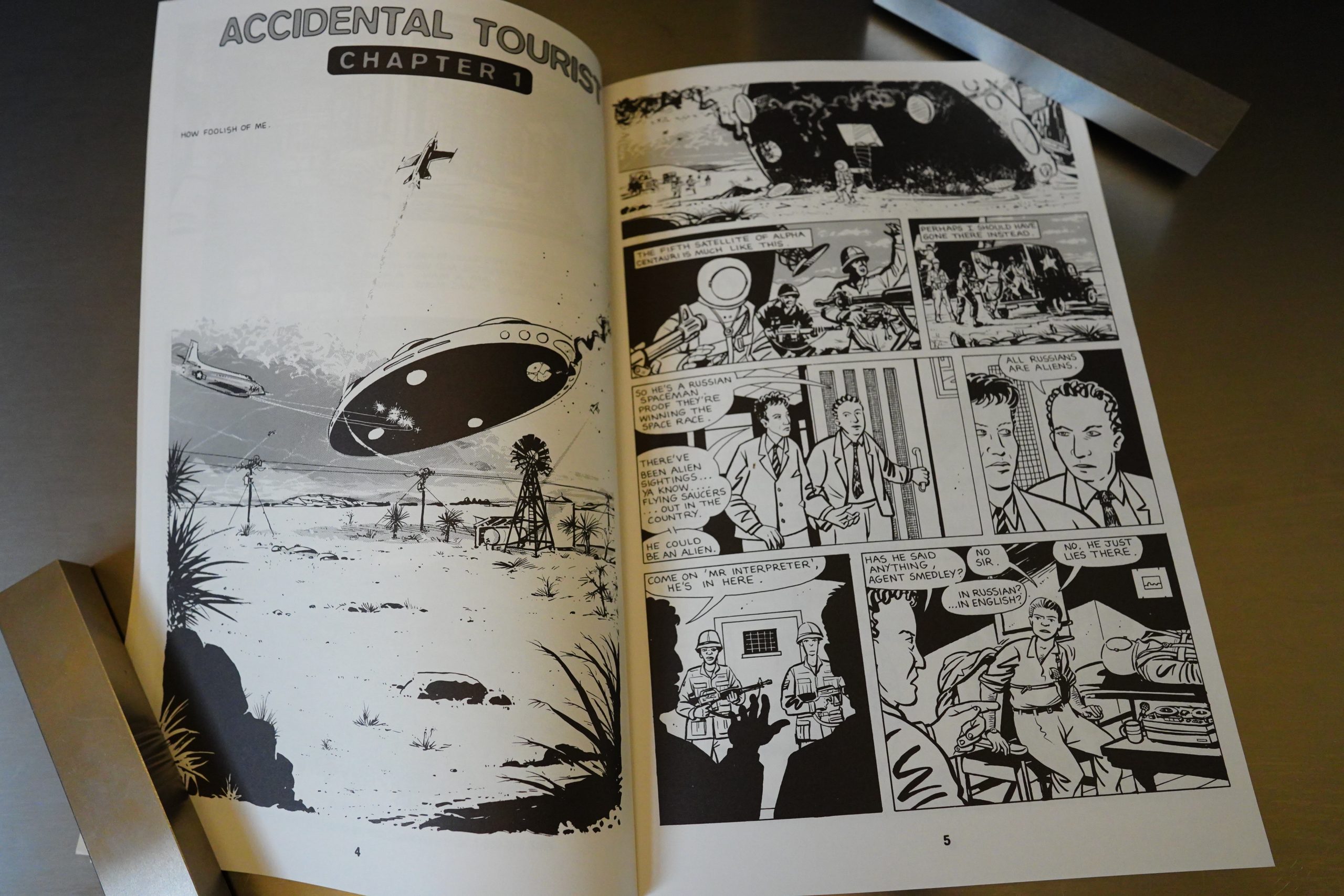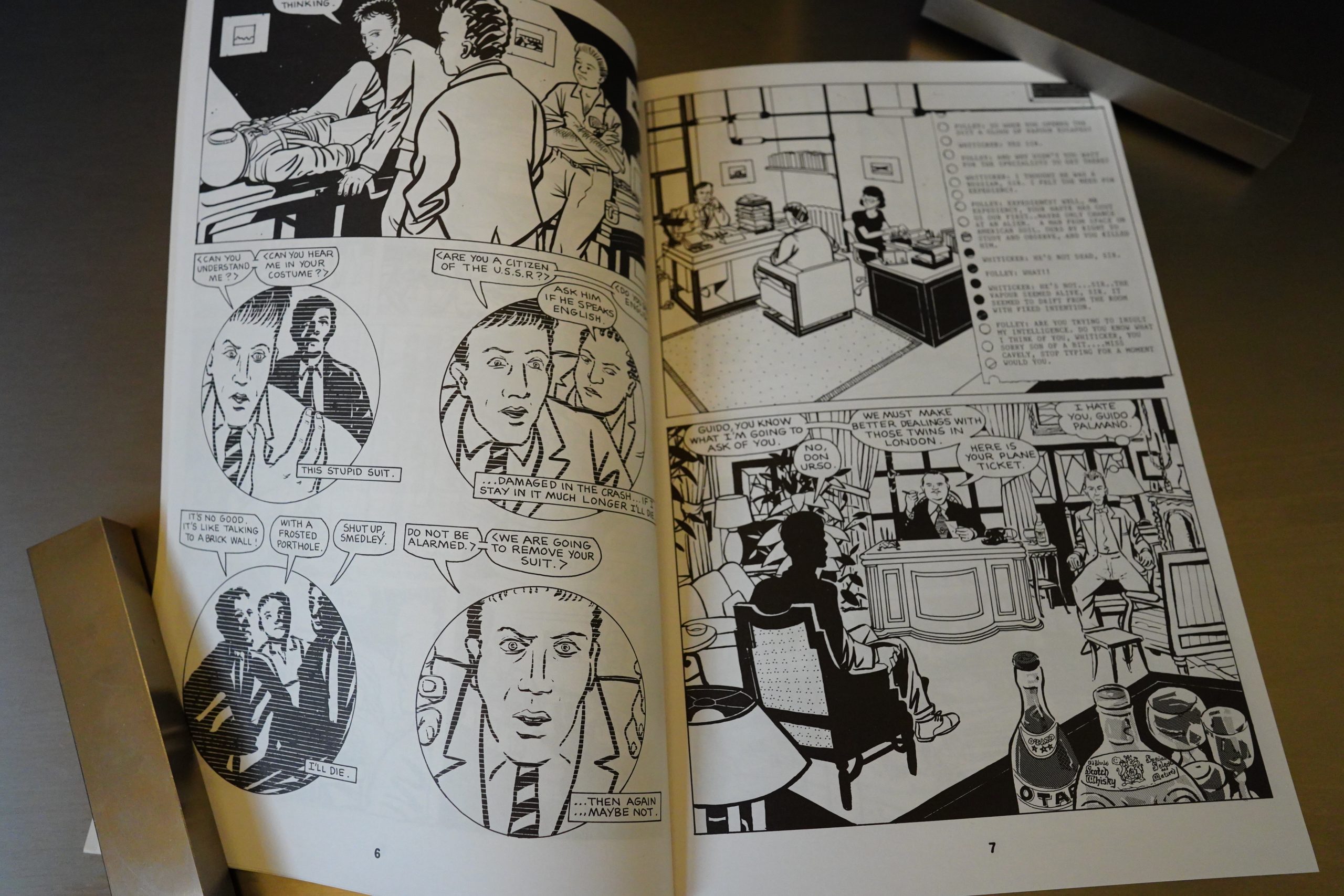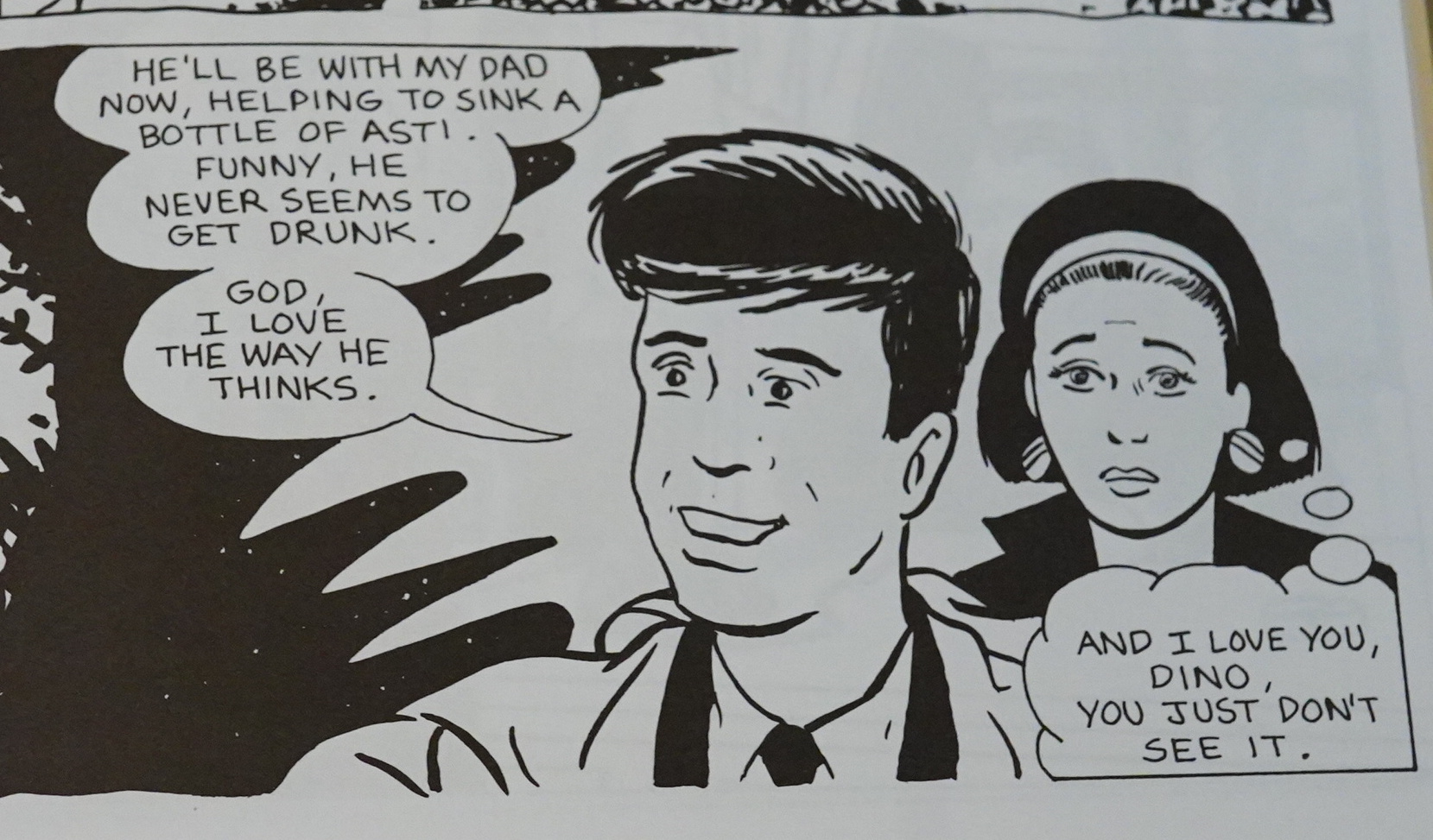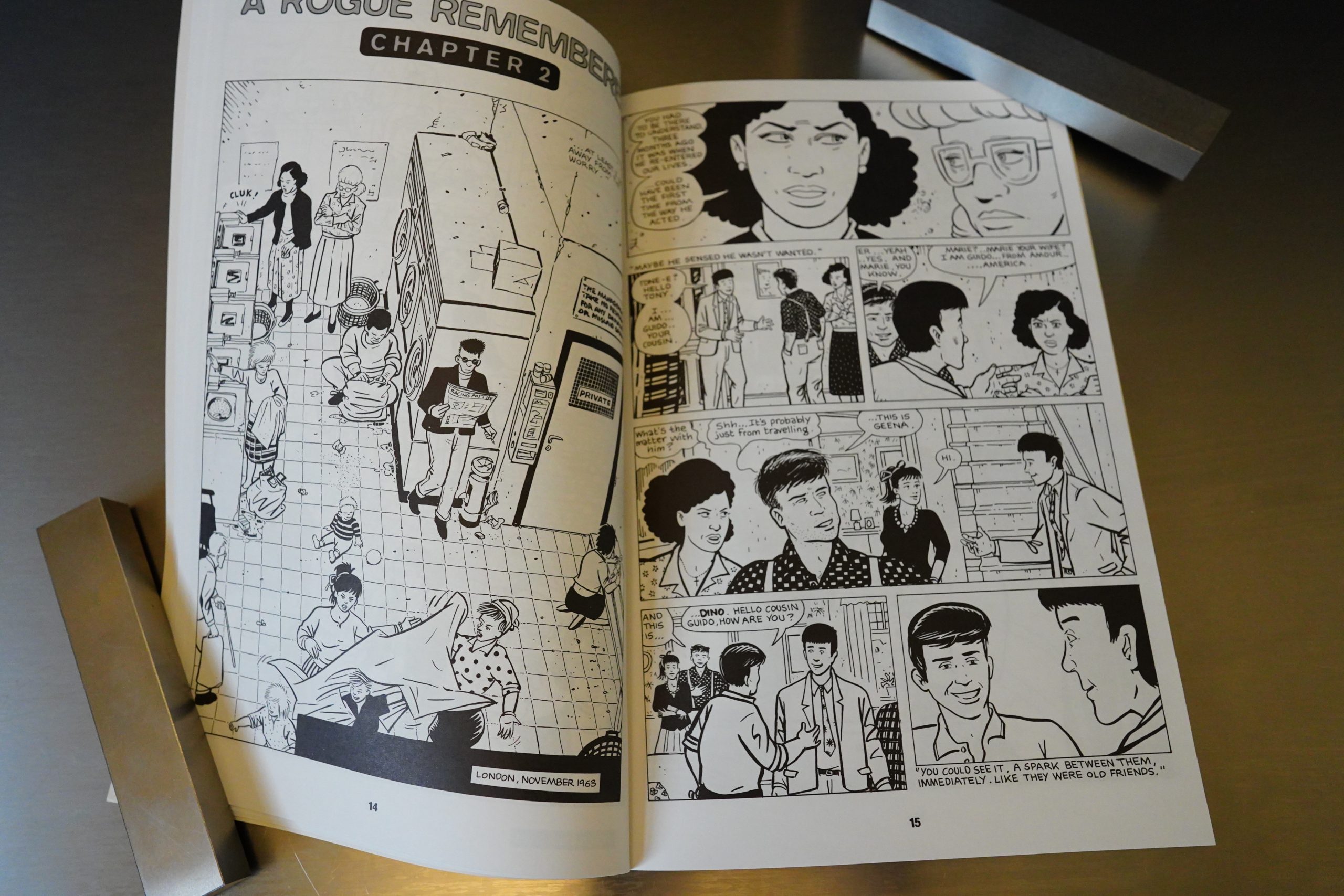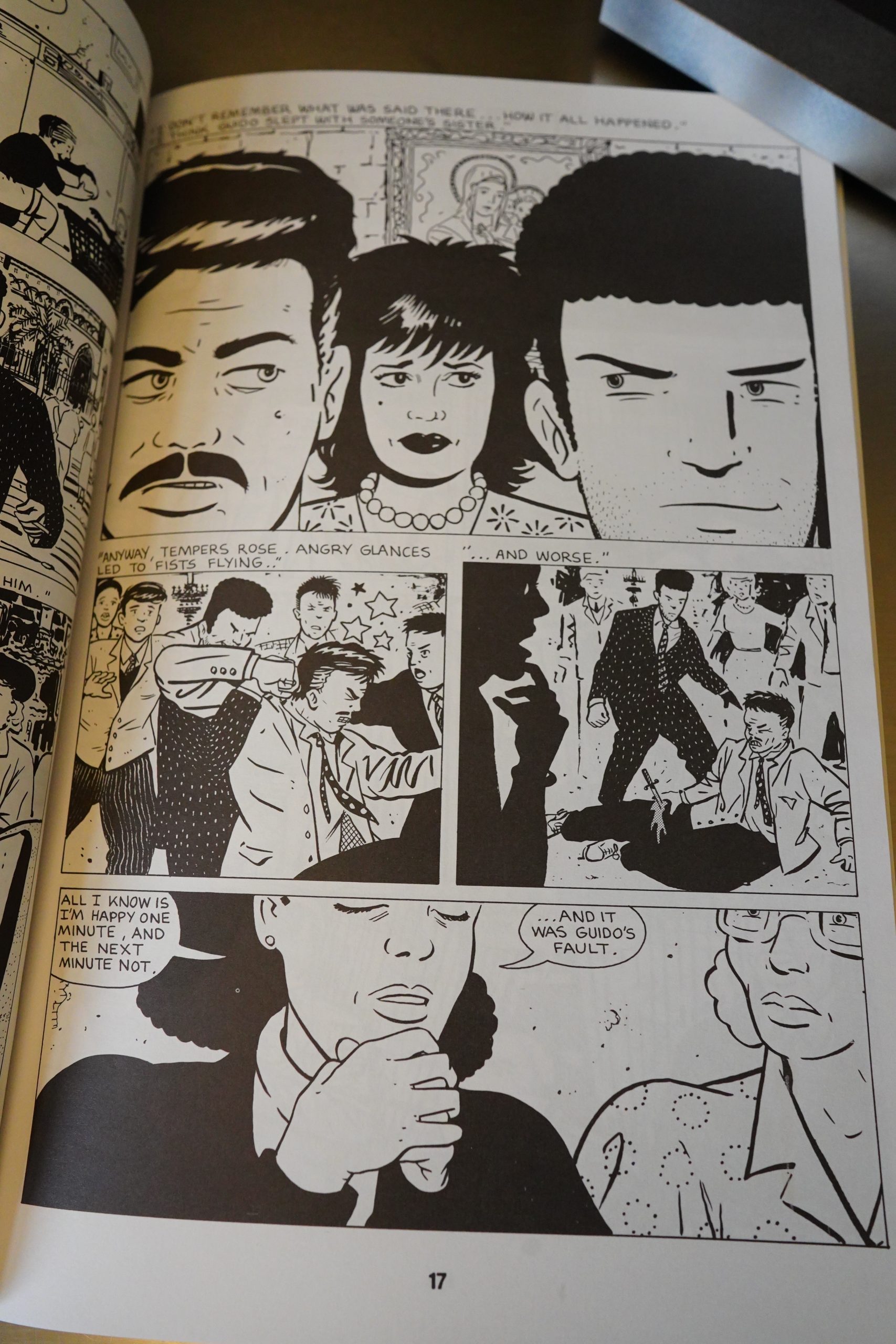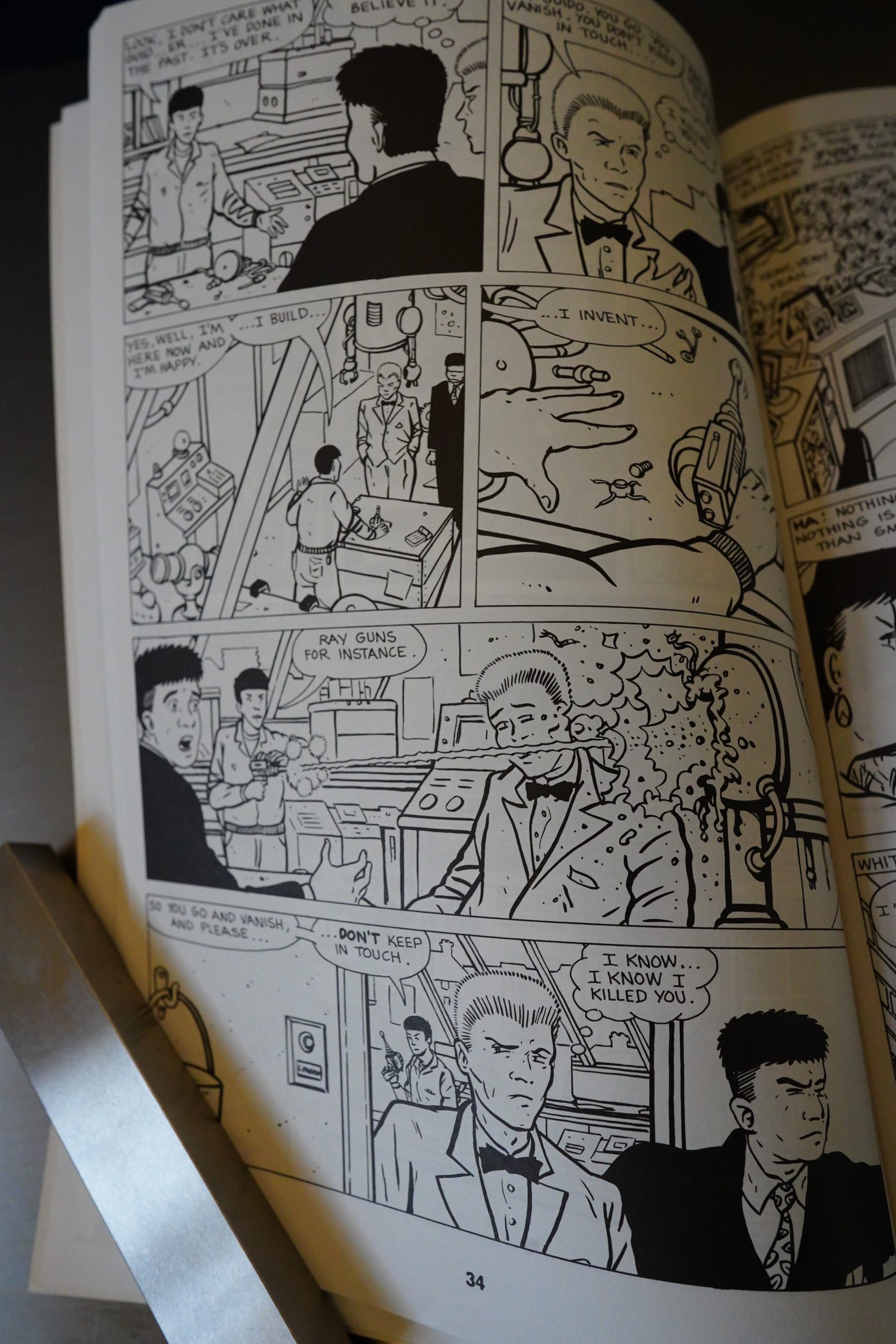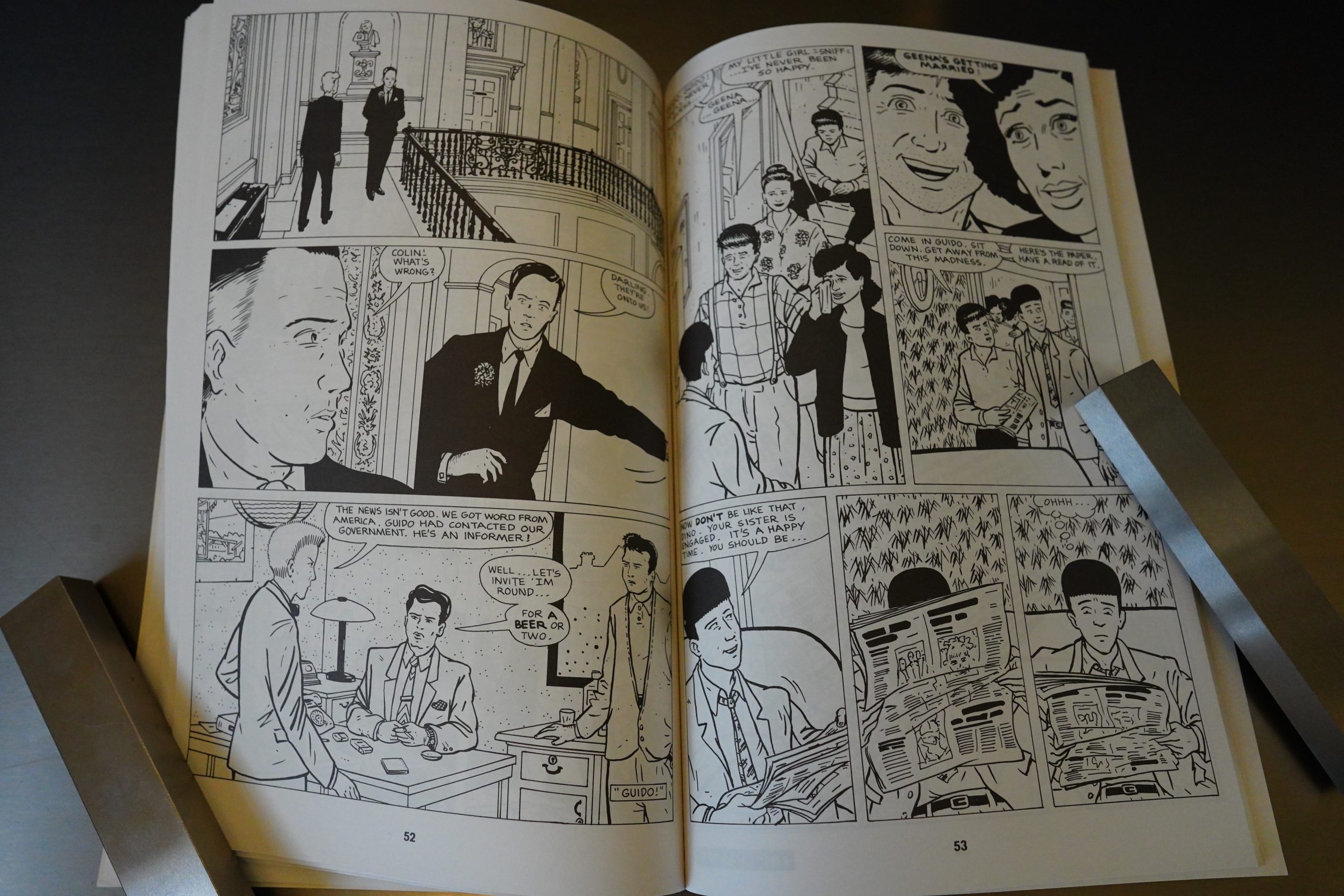Illegal Alien (1994) by James Robinson and Phil Elliott
Oh, I was thinking of Resident Alien, the much later series that was turned into a TV series…
The concept is suspiciously similar: An alien lands on Earth and takes over somebody’s body, and then it turns out that the alien is pretty nice. It’s not an unusual concept, though, and the particulars are very different.
This alien takes over a mobster’s dead body, and then starts inventing stuff, and then the KGB, the CIA and other organisations turn out to be interested.
It’s a frustrating read. Some things are over-explained to the point of ridiculousness (see above), and other parts are just vaguely hinted at (what’s the KGB/mobster connection anyway)?
The other problem is that there’s at least twice as many characters here than there needs to be. At least. And Elliott, who used to have a more cartoony, stylised (and stylish) styling style seems to be attempting to tone all that down and deliver something more “normal”.
Or is he just trying to do Beto Hernandez? It certainly looks that way. Which brings me to another problem with this style and the number of characters: Many of them are just extremely difficult to tell apart, especially as Robinson doesn’t use Beto’s trick of having everybody mention each other’s names all the time. I.e., “Hey, Luba, can you fetch that hammer?” “Yes, Doralis, I’ll do so.”
So some things are vague, and some things get repeated so many times… I think that guy things “I know I killed him” a dozen times?
Robinson would go on to greater fame with Starman over at DC, of course.
I guess this book originated at the Tundra UK office, because it doesn’t really seem like a thing that Denis Kitchen would have chosen to publish himself.
Robinson is interviewed in The Comics Journal #199, page 105:
Everything was about trans-
formation. ltwas sort of an exercise in storytelling, and
it unas just something that was in me and I wanted to
tell. Phil Elliot is an artist that unfortunately has not lit
a fire under anyone in terms of his style, but who I
respect greatly, and who I think is a really overlooked
creator. It was another chance to work with him at a
time when I don’t think anyone else really was dying to
do so. And I would love to work with Phil again on
something else. I’ve just have not had the time to
pursue that. So that, in a sense, what Bluebeard
was. It was an exercise — failed or not, I’m not sure —
but it was something I’m glad I did.
SPURGEON: No•w both 67 Seconds and Bluebeard are
moreformally structured. You mentioned the transforma-
hons in Bluebeard, and there’s also the timing motifof67
Seconds. Was thre a conscious effort to develop those
kinds
ROBINSON: I think ids also there in Illegal,dlien. Illegal
Alien actually has kind of an interesting history. Phil
had the first part, and we offered that with a synopsis
of all six issues to Dark Horse, and there was like a
verbal agreement that they would do it as a six-part
thing in Dark Horse Presents. There was the overall
synopsis which is the alien takes over the hit man’s
body and with the second issue, we go to London and
it becomes another slice-of-life *Ealing Films” type
story. Again, I’m going back to my film metaphors, but
I was trying to do an Ealing Film if they had stayed
around long enough to do an alien science fiction
film… but one with all the human slice-of-life stuff
that Ealing Films excelled at.
Anyway, Dark Horse read the first part set in
America, but I don’t think they could possibly have
read the proposal showing that the bulk of the story
took place in 1960s London. So they came back saying
it was derivative of other comic stories. I never found
outwhat they meant by that, butl can onlyassume that
they only read the first part, and ifyou look at that on
its own… ifs a little bit like Silent Invasion with the
FBI in Americahunting aliens. But it takes such a swift
tangent after that. So Dark Horse chose not to publish
it, but Phil ‘.vas so convinced in it that he wanted to see
it through, so he kept on working on it, and it was
many years later that it was finally published by Kitchen
Sink. Thatwas something else I did three or four years
before it was published, and it languished around for
awhile.
Comics Scene Volume #2, page 60:
“The other thing I should mention
is I have a graphic novel coming out
from Kitchen Sink called Illegal Alien.
It’s a small black-and-white, it’s set in
1960s London, it features aliens, the
Kray twins, the CIA, KGB and mods
and rockers and ice cröam vendors. It’s
a quirky and exciting little book. I try
to do something every year that doesn’t
make me any money, but has a good
story that I want to get out of my
system. I do them just for my own san-
ity and my own self-worth as a writer.”
It has never been reprinted, but there’s a couple reviews out there:
Despite a few mild faults, this remains a charming book with a playful innocence that’s ultimately endearing. Be prepared to suspend belief and enjoy an old-fashioned kind of tale that remains surprisingly fresh amongst its present-day peers.
This is the one hundred and seventy-third post in the Entire Kitchen Sink blog series.
